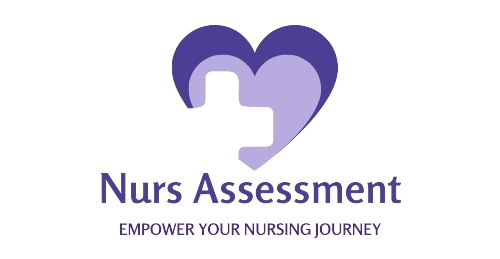Nursing is a complex profession and needs expertise to develop effective care plans for their patients. Nurses must be capable enough to develop care plans for every type of patient. Nursing professionals are the ones on the front line when it comes to working with this multi-dimensional and complex issue of low self-esteem on the part of the patients themselves.
Furthermore, a nurse can understand how important self-esteem is to a person’s total well-being, whether physically or emotionally. It places nurses at the forefront of holistic health care that encompasses not only the physical but also the psychological and social dimensions of a patient’s health.
Due to this reason, nurses emphasize more on evaluation of effectiveness of the interventions and on support, education, promotion of self-esteem, and self-care practices. In addition to this, they work hard to make a super effective nursing care plan for low-esteem.
Low Self-Esteem in Patients: An Overview
Low self-esteem is like that little nagging voice at the back of your head, kind of whispering to you that you can’t when you totally can. In the nursing care of patients, that implies feelings of unworthiness because negative thoughts enter slowly into one’s sense of self and competences.
Therefore, it is very important to address the significance of self-esteem in one’s life. No doubt, the boosting of self-esteem is not all about feeling good but also associated with other factors of personality. Nursing care plan for chronic low-self esteem can help people a lot.
Additionally, the effects associated with low self-esteem can affect a patient’s chances of recovery, compliance with set treatment plans, and general lifestyle. A nurse can play a part in assisting that patient to build confidence and resilience through the identification of a patient’s self-esteem issues.
- How Low Self-Esteem Affects Patients
We can’t deny that the physical and emotional consequences of low self-esteem can affect a person’s health. Moreover, in the case of patients, its impact becomes double. Low self-esteem is not just in the mind; it can manifest in the body also. From higher stress levels to poor self-care habits, low self-esteem takes its toll on health day and night.
Nurses can face problems in health care delivery associated with low self-esteem. Imagine trying to follow a treatment plan when you’re convinced you’re not good enough. In that case, low self-esteem can become a huge barrier to healthcare. Patients are then less likely to participate in their care or seek the help they need.
- Assessment & Diagnosis of Low Self-Esteem
Nurses use evidence-based assessment tools for low self-esteem. The assessment instruments are based on evidence that help nurses to evaluate levels of self-esteem objectively. Nurses can identify areas where patients have problems and can further individualize interventions through these instruments.
Furthermore, another important thing to make a nursing care plan for low-self esteem is collaborating with patients to identify self-esteem problems. No doubt collaboration with patients to identify problems of self-esteem makes the patients trust the nurses and empowers them to participate in the management. Besides, who knows the patient better than the patient themselves?
- Developing Individualized Nursing Interventions
Furthermore, the creation of the individualized care plans from the assessment results is important. Now, knowing the exact problems regarding self-esteem in each of the patients help nurses to create individualized care plans, which can address the definite nature of the problem.
There is no doubt that applying evidence-based interventions to improve self-esteem has good results. Evidence-based interventions—these are the superheroes in boosting self-esteem, from positive affirmations to self-care activities. Besides this, the integration of such interventions in care enables nurses to help patients rebuild their self-image and confidence in themselves, one small step at a time.
- Working with a Multidisciplinary Team for Holistic Care
Psychologists and social workers are very important in the treatment of self-esteem problems by the patient. No doubt, the psychologists can be able to do a therapy session as a way of solving the deep-rooted psychological causes of low self-esteem. Social workers, on the other hand, can offer social support and link patients to some resources, which are offered within the community to enable them to have a better standard of life.
Indeed the incorporation of therapeutic modalities in nursing care plan for low-self esteem is helpful. Nurses are equipped with tools to provide integral care to fill low self-esteem needs through such therapeutic modalities as cognitive-behavioral therapy, art therapy, or mindfulness practices. These modalities offer patients the relevant ways in which they can improve their self-esteem with the satisfaction and needs fulfilled as wished.
- Evaluation of Nursing Care Plan for Low-self Esteem
Nurses evaluate whether the nursing interventions are effective or not. Due to this reason, the patient outcomes related to the improvement of self-esteem are significant to measure. This can be done by the use of appropriate, standardized tools to measure the changes in the range of self-esteem, over a passage of time, for determining the extent of effect of the care plans developed by nurses.
Furthermore, the nurse may modify and adjust care plans to make such care more responsive to the patient. Whether it’s the change in therapeutic approaches, collaborative activities with other health care providers, or looking at new strategies of intervention, changing care plans identifies approaches that are tailored and effective in changing self-esteem.
- Support and Education for Patients & Families
Nurses educate patients and families to empower them with knowledge on self-esteem and mental health. Indeed, empowering the patient with psychological knowledge about self-esteem and mental health enhances knowledge and skills for the patient to be able to engage in his or her care maximally.
Furthermore, this knowledge regarding self-esteem and psychological health helps the patient to be able to make informed decisions and move toward creating a positive self-image. Likewise, the family involvement in the care plan would help involve a better support system for the patient. There is no doubt that educating families is also a significant component of a nursing care plan for low-self esteem.
Nurses are able to educate families on what emotional support means, encourage free communication, and further involve them in therapy if they set up a friendly and collaborative atmosphere that will enhance healing.
FAQS
- How do nurses promote self-esteem?
Nurses can boost self-esteem through natural conversation and discussion on general topics. Additionally, they can discuss their life issues other than their illness and treatment.
- What is the best therapy for low-self esteem?
The best therapy is cognitive behavioral therapy. On the other hand, compassion focused therapy and competitive therapy are also useful in this case.
- What are the 4 actions that promote self-esteem?
- Feel kindness for yourself
- Support network development
- Recognising positives
- Take Care of yourself

